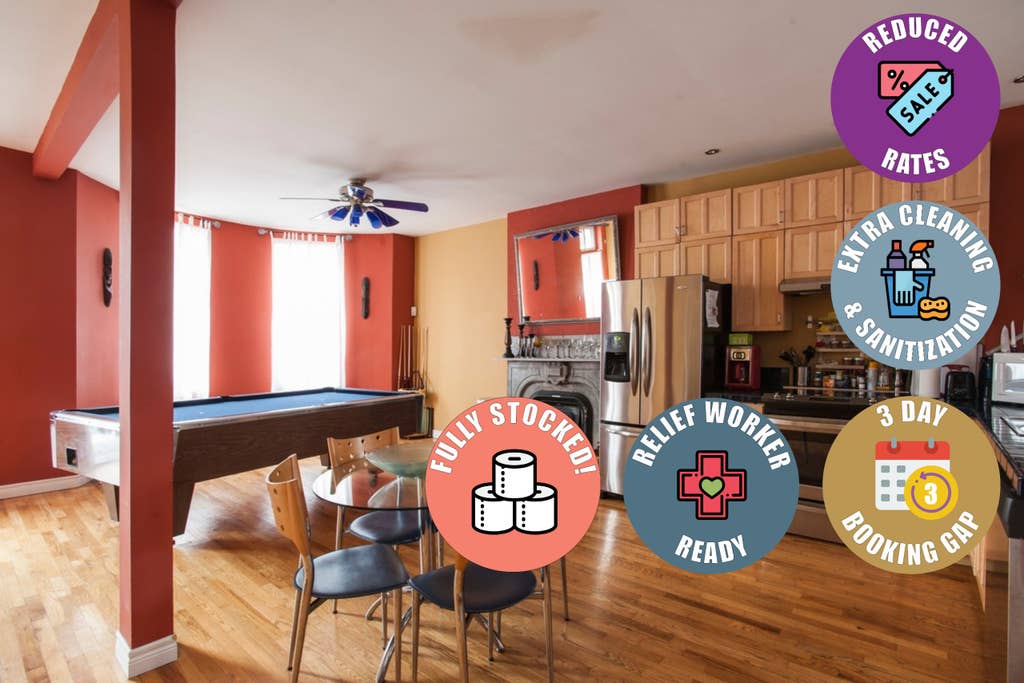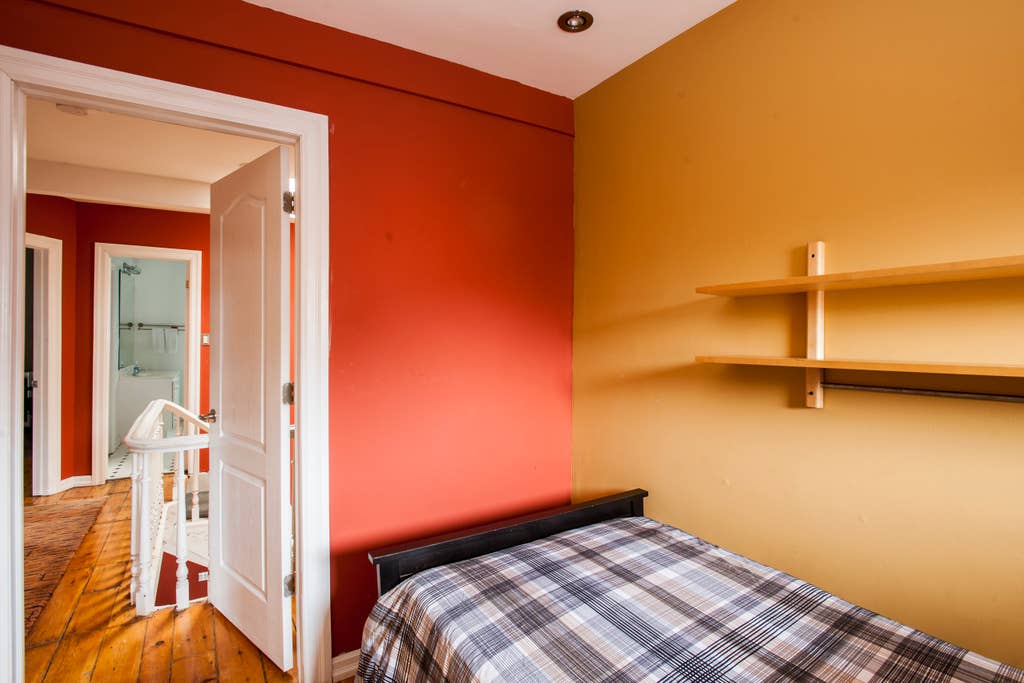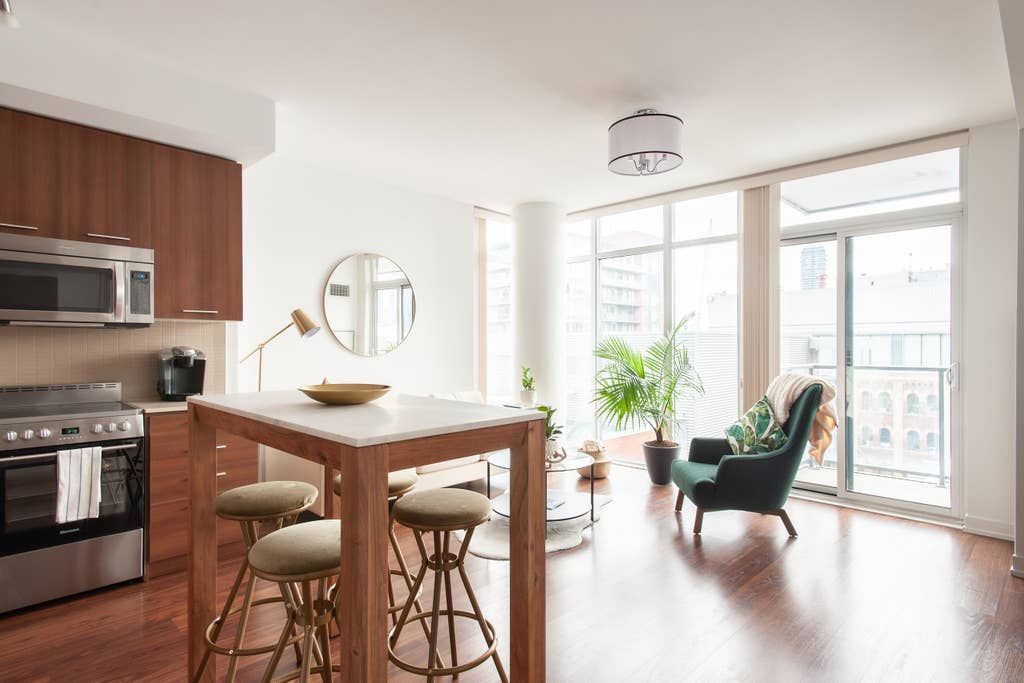Today’s guest is Matt. He runs 10 listings in Toronto and he is a co-host of some of those units. He achieves an above 85% occupancy rate in an average month. It breakevens during the low-season and making up to six to six thousand dollars per his one-bedroom condominium unit. He is also an owner of airbnbuncovered.com with a youtube channel giving useful information for Airbnb hosts.


Podcast summary!
- How to choose where to run an Airbnb? (1:13)
- Matt's is doing a combination of rental arbitrage and co-hosting (4:02)
- How to find co-hosting opportunities (6:16)
- Current status of Matt's Airbnb listings during the pandemic (7:45)
- What is the seasonality of Airbnb in Toronto - Summer is the busy season, but there's still business travellers in winter. (8:24)
- Average Daily Rate (pricing) difference between low season and high season. The price in high season is at least double. (9:53)
- Occupancy Rate is above 85% (10:02)
- Revenue for 2 bedroom apartments are $2,800 - $6,500 (15:11)
- What are the hardest things about co-hosting? (15:33)
- About airbnbuncovered.com (18:30)
Full Interview Transcript
Jaeseok an
So yeah, when you like acquire new Airbnb properties, how do you make the kind of decisions like what’s your process
Matt Caissie 1:13
so I first start with area like the location. And in Toronto I have a specific zone that I want to keep inside. And it’s the same zone that I tell my co hosts to, to focus on as well. And what makes that zone good is the proximity to the two things. So the first is proximity to tourist attractions and large concert venues and the CN Tower in Toronto, which is a huge tourist draw. Right? So luckily those things are all close together. And then the second thing that I look for is to make sure that there is the location is close to A business district because there are really two types of travellers on Airbnb hosts who are travelling for vacation and those who are travelling for business.
And so the vacation travellers drive the price up in the summer and the business travellers are the ones that keep things going in the winter. Right. The other thing, that’s the other good factor is to be close to a convention centre, okay to try to attract business travellers. So luckily here in Toronto, those the proximity to those kind of two or three main things, the proximity to office buildings to a convention centre, and two main tourist attractions are luckily they’re all really close together. So I stick to running properties in those areas and in that area.
jaeseok an 2:53
Right, I see. Are those areas popular for short term? No, I mean, Long Term rentals as well.
Matt Caissie 3:02
They’re less popular for long term rentals because
a most of the condo buildings in those in that area are a lot of short term rentals, which can detract from long term stays. Yeah.
Unfortunately, that specific area,
which has which is close to the financial district and to the tourist stuff, doesn’t have a lot of,
I don’t know, kind of call it day to day. things,
jaeseok an 3:31
right.
Matt Caissie 3:33
So it’s less attractive. I mean, there are tonnes of condo buildings down there. So people are definitely living in those areas. Right.
jaeseok an 3:43
Yes, he sounds like a pretty good place to do those rental arbitrage, renting out in the long term and renting it out on Airbnb.
Matt Caissie 3:53
Yeah, yeah, for sure.
jaeseok an 3:55
How about yourself, are you renting out those properties? Are you are you renting those properties Do you by me?
Matt Caissie 4:02
Mine are combination of arbitrage and co hosting.
jaeseok an 4:06
Okay? Right? What do you mean by co hosting? So you. So there’s different types of the co host and what kind of CO hosts like how much of the worst thing you do.
Matt Caissie 4:20
So when I take a new co hosting client on, I take a fixed percentage of the total revenue. And I effectively remove the main host out of the day to day operations completely. And so I am only involving a host when we’re talking about strategic decisions about pricing over the long term, but not say I want to change the price for the next few weeks by increasing it by $10. That’s not going to go to a co host. So basically, I come in and I manage the entire operation. From looking after the cleaning to the restocking, to managing everything to do with guests and key exchange and check in and check out, my hosts really hands off. And that’s great for them because they don’t want. They want the additional revenues from Airbnb, but they don’t want to be woken up at three o’clock in the morning or have to wait up late for a guest. And so that’s the service that I provide to them is I will be I will manage everything for you. And you’ll be only involved on a strategic level with se, which is about setting our, you know, our pricing and our strategy for the year what types of desks we want. And then otherwise, we might be in touch if there’s a we wouldn’t be in touch if there was a maintenance issue. That wasn’t easily rectified.

jaeseok an 5:55
I see him, he says and how much of the percentage usually take from the revenue or profit.
Matt Caissie 6:04
So it’s usually 20%, which is the standard right here in Toronto, right from the total revenue. Yes.
jaeseok an 6:16
That’s pretty good. And how do you find those who do find someone who already want to find co host? Or do you find just normal, long term rental hosts and convincing them to lease it on Airbnb?
Matt Caissie 6:31
So I’ve been lucky. All of my co hosts have found me in one way or another. Okay, way back when I first started being a co host, four years ago or five years ago, Airbnb actually had created a marketplace where hosts who were already super hosts and met some other criteria were eligible to make themselves available to to co host for other people. And then they marketed the CO hosting marketplace to hosts. And so my first two co hosts found me that way. So they wanted to co host they went into the marketplace, they saw what I was up to, and the description that I had given. And so that’s the first two came. And then the last three came through word of mouth.
jaeseok an 7:23
Right. So you have eight listings right now.
Matt Caissie 7:30
10 times.
jaeseok an 7:33
And how are they doing right now? I mean, how are you heavy? You? Are you still accepting the guests? Or have you blocked some of the like, next few weeks? How’s it going?
Matt Caissie 7:45
So we’re still open. We are complying with the local laws and the law, the bylaws within our buildings. And so in many cases, that means that our reservations have to be 30 days or longer. Right
jaeseok an 8:02
Right, so the guests you’re accepting are staying longer than 30 days. Yes, exactly. Right. Okay. You’ve mentioned about the high season is in the summer with tourists plus business travellers and low season seems like the winter.
Matt Caissie 8:24
Yeah, we follow a very typical seasonality curve. Yeah, so it’s exactly that. So the high point is July and August and that’s double the revenues from January and February.
jaeseok an 8:41
Right.
Matt Caissie 8:42
And basically from March until June, you can curb the revenues up almost on a straight line to meet the the top and in July and then we rebound slightly in September because Toronto has And an International Film Festival in September, and that’s for 10 days. And those 10 days are the absolute best nightly rates of the entire year. Right. But then after that tourist season is over, the festival is over and we take a pretty, pretty, pretty sharp decline until we get to December and then in December we get a bit of a rebound from guests who are travelling for holiday parties or people from around the area who are coming in for Christmas shopping trips. So we got a bit of a rebound in December but then it goes back to goes to its lowest in January.
jaeseok an 9:44
I see how much I feel like average daily rate difference between January and June in July.
Matt Caissie 9:53
At least double if not more. At least I will.
jaeseok an 9:56
Yeah. How about the occupancy rate in January 1. He’s June in July.
Matt Caissie 10:02
It falls. So for the average Toronto hosted falls quite a bit. For me, I try to still maintain at least 90% in January and February, right this past January and February was a bit tougher, because actually not well, travel was down. Or I shouldn’t say travel bookings were down in January in February. And I think, from the research that I’ve done that was largely due to the market here being pretty flooded. Right? So there’s a lot of growth and short term rentals in Toronto and we especially during the slow season, I think we are starting to see what happens when supply outstrips demand.

jaeseok an 10:45
Right. But
Matt Caissie 10:48
yeah, generally, I mean, I do my best keep that 90% in January, February, so January February 2019, I would have been higher closer to now. Sex are 98%. But this year, there was definitely a fall.
jaeseok an 11:05
What do you think is the reason of like this year? January? I mean, I understand about maybe March, but how come you had a decline from the January is here
Matt Caissie 11:18
is what I was saying is that the number of listings in Toronto has grown exponentially, right? And so there are a lot of hosts who are or Airbnb. So having a lot of listings in an area can be helpful because it tells potential guests that this like it helps to create the market. So that potential guest comes on to the site and they see there’s lots of options and they’ll probably make a booking, versus if they come on and they see there’s not very many options and we lose that guest. But at the same time as more people invest in Airbnb, you know through purchases or Through rental arbitrage, there are more people that need to survive. And I would hazard to say the newer entrants to the market are, they’re a bit behind. And so they’re chasing what they hear and what they hear about, you know, strong rates and increased revenue over long term rentals. Right? That’s not necessarily happening. And when it doesn’t happen, hosts get desperate, and then we start to see a real decline in rates.
jaeseok an 12:32
Yeah. Makes sense. Makes sense. So you’re saying that there has been increase in Airbnb supply, while demand hasn’t actually caught up to that supply?
Matt Caissie 12:45
Yeah, yeah. And I don’t know.
I don’t know if demand would catch it in January, February, March. right because even November for certain degree because During those times, it’s not a very great time to visit the city. It’s cold here. A lot of tourists things are shut down for the season, because we really do have an actual tourist summer tourist season. Toronto is very much like a coastal town are a cottage country. In terms of tourism. The only thing that happens in the winter here for tourists draw are hockey games and basketball games. So some sporting events, but those sporting events are, you know, a couple times a week, so you can’t build an entire tourist business on those two things alone.
jaeseok an 13:45
Right. So you’ve mentioned that you’ve had some decline in this year, like compared to last year, which was 90 to 95%. So like how much of the occupancy rate Did you have this year?
Matt Caissie 13:58
This year is lower It’s below 90 for sure.
If you want to take March or February, January, February in the first half of March, it was probably 85 to 90%. And then after mid March, we’re talking COVID stuff. So then things are very different.
jaeseok an 14:19
Yeah, make sense? Yeah. So how much easier to renting the average like two bedroom house apartment in that area in Toronto, if you’re going on the long term lease,
Matt Caissie 14:35
so I don’t deal much in two bedroom units. Right. My main thing is one bedrooms. One, a one bedroom condo for rent, pre COVID would have been
somewhere between 2100 to 2800 a month.
jaeseok an 14:57
That’s the that’s the Like the rental price to renting the one bedroom apartment for the long term, right?
Matt Caissie 15:07
Yes. Okay.
jaeseok an 15:11
How much has been your revenue in high season and low season? Wait?
Matt Caissie 15:19
Yeah the high season can go as high as 6000 to 6500. But that’s the absolute best it can be. And low season can be as low as 2800.
jaeseok an 15:33
ACC you’re breaking even during the low season and making the most out of it during the high season. And probably like, other seasons in between shows correct. Right. And that was the hardest thing about co hosting.
Matt Caissie 15:58
The hardest thing about co hosts is trying to find a co host who is going to have the same values and approach to running an Airbnb as I do. So I don’t run an Airbnb, can you fully maximise revenue at all I like to maximise revenue at the expense of everything else. So I’m only going to work with CO hosts to understand that there are going to be times that the unit may be left empty. And that’s because I’m not going to be like I have a very strict set of requirements for who I host and I’m not going to back down from those requirements because perhaps we’re not hitting our month. Running can there be a visa once with basically me and a couple cleaners is very, it can be very time consuming when things aren’t going right. And so I know Need the guests that we’re hosting to be good guests who aren’t going to cause me problems who aren’t going to do any damage? We’re going to leave on time, that sort of thing. So I’ve developed a, like I said, some some guidelines, some criteria that I use to vet guests. And then I only host guest guests that fit within
that criteria.
And I actually did have a YouTube channel. And I did a three part series on the types of guests that I think that all hosts, all hosts should host. I really think that those hosts out there who are are taking unnecessary risk and taking on any guests that basically provides their credit cards and shows up like, I think that is going to be the detriment to our industry. As a community of hosts. We need to be responsive We need to be respectful and and to do that we need to follow certain guidelines right should be hosting And on the flip side no host wants to come into a place that has been trashed from a party or find out that there were 10 people in the unit instead of two people in the unit and so I was really do need to properly vet their guests
jaeseok an 18:26
right and Do you mind sharing your venting process? Or is it something that you can if there’s something that you can share?
Matt Caissie 18:34
I don’t know if we have time to share it I really think the best thing is to head over to Airbnb uncovered.com slash blog and and then check out the videos in the blog post there
jaeseok an 18:48
says Airbnb uncovered calm
uncovered uncovered.com slash blog.
Alright, yeah. Found What was the business about?
Matt Caissie 19:02
The blog? It’s been about a year.
jaeseok an 19:04
Right?
Matt Caissie 19:06
Mainly, so I’ve been working on it for it’s an idea that I wanted to do for like, three years or more now. And I started it last about a year ago. And then I’ve really gotten serious with it over the last four months. And so the website came a year ago and then the YouTube stuff. It’s all been basically since I started filming in December and started uploading in January, so it’s still very fresh. Yeah.
jaeseok an 19:39
All right. Have a nice day there.
Matt Caissie 19:41
Thank you. Okay, bye bye.
Transcribed by https://otter.ai




